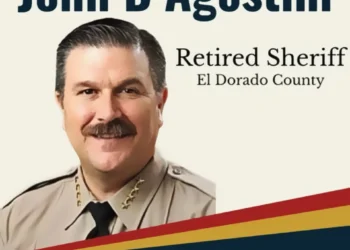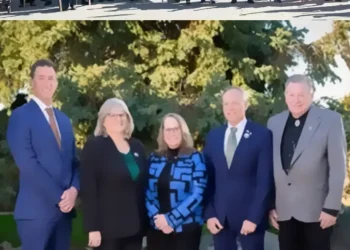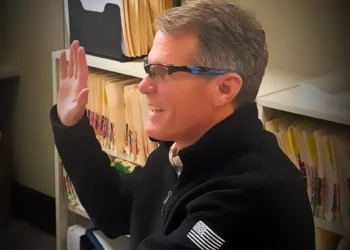Editorial: Why Rural California Is Saying “No” to Proposition 50
Rural California has seen this play before—city politicians promising “fairness” only to redraw the lines in their own favor. Proposition 50, they argue, threatens to do just that by letting the state Legislature take over redistricting from the independent citizens’ commission, a move many in the countryside view as a partisan power grab. From Shasta to Modoc to El Dorado, rural leaders warn that Prop 50 would carve counties into pieces, stitching their communities to far-off urban districts with vastly different priorities. In places where wildfire prevention, water rights, and agriculture define daily life, that loss of voice feels like more than political—it feels personal.
Opponents point out that the measure’s $200-million price tag comes at a time when rural infrastructure, roads, and emergency services are already underfunded. They fear that merging their votes with dense city populations will erase the local concerns of small-town Californians. The Citizens Redistricting Commission was designed to prevent exactly this kind of partisan manipulation, and critics argue Prop 50 undermines the independent process voters fought to establish. For many in rural California, the message is clear: if you want to be heard, vote no.
Why Rural Californians Might Oppose Prop 50
Here are key concerns from rural areas:
-
Dilution of Rural Representation
-
Rural communities worry they will be merged with large, urban, or suburban areas whose priorities differ significantly. For example, issues like farming, wildfires, land use, water rights, forestry, etc., may be overshadowed by urban issues (public transit, housing, etc.).
-
For example, Modoc County is concerned about being grouped with Marin County and Bay Area communities. They feel that their voice will be muted.
-
-
Splitting Counties or Communities
-
The proposed maps under Prop 50 would divide many counties into multiple congressional districts. This means a county might be represented by more than one Congressman, which makes it harder for leadership to advocate for shared rural priorities.
-
Example: Fresno County leaders argue that Prop 50 would split their county into six districts.
-
-
Loss of Local Coherence
-
When communities are drawn into districts with places far away, with different interests or needs, representatives may not understand or prioritize local (“local” meaning rural) issues well. For instance, valleys or high-desert counties might end up sharing districts with dense urban cores.
-
-
Shifting Influence & Power
-
Because rural populations are smaller and often more spread out, when districts are redrawn to include more densely populated urban/suburban areas, those urban voters may dominate electoral outcomes. That could lead to elected officials who are less responsive to rural values or concerns.
-
-
Partisan “Power Grab”
-
Many rural critics see Prop 50 as politically motivated: the maps are drawn by legislators (who are elected officials, i.e. political actors), not by the independent commission. They fear this will allow partisan redistricting that favors one party over another.
-
There’s concern that this undermines the independent process voters approved (via Prop 11 / VotersFirstAct) that was meant to keep map-drawing fair and separate from political influence.
-
-
Cost & Special-Election Concerns
-
The special election for Prop 50 reportedly costs around $200-250 million. Rural areas might disproportionately suffer when state resources are diverted this way, especially if local services are underfunded or there are other pressing needs (infrastructure, fire protection, roads).
-
-
Geographic & Cultural Differences
-
Rural Californians often live in places with very different geography (mountains, deserts, forest lands) and share cultural values (less dense, different livelihoods). They may fear being paired with urban areas with conflicting policy priorities (e.g. environmental regulations, land restriction, housing, etc.).
-
-
Trust & Oversight
-
The independent commission has checks and transparency (public input, citizen participation) that many rural critics believe provides at least some buffer against maps being drawn for pure partisan gain. Shifting to legislature-drawn maps temporarily may reduce those checks.
-
Key Reasons Sheriff & DA Opposition to Prop 50
-
“Power Grab” / Partisan Control Concerns
Sheriffs and DAs argue that Prop 50 would dismantle the independent redistricting process approved by voters (via the California Citizens Redistricting Commission) and instead give map-drawing power to the Legislature. They view this as moving decision-making away from citizen oversight and toward political actors who might redraw districts in ways that protect incumbents or parties. -
Dilution of Rural Representation / Splitting Counties & Communities
Many rural officials are worried Prop 50 will split rural counties or lump them into districts alongside urban or suburban areas with very different needs and priorities. This could dilute rural voices on issues like land use, wildfire control, agriculture, water rights, and local infrastructure. -
Undermining Public Trust, Transparency, and Fairness
Since the independent commission process includes numerous public meetings, input from tens of thousands of citizens, and is structured to reduce conflicts of interest, many law enforcement figures believe Prop 50 erodes these protections. They see redistricting behind closed doors as weakening democratic legitimacy, making it harder for the public to trust that maps are fair. -
Cost / Opportunity Cost
The special election itself is expensive (estimates in the hundreds of millions of dollars). Sheriffs and DAs express concern that those funds could instead be used for core public safety, treatment, court security, or other local priorities. Village News+2Inedc+2 -
Legal and Institutional Precedent / Stability
There’s worry that temporarily overriding the commission, even if claimed as “temporary,” sets a precedent that could be abused in future. It raises fears about shifting the rules mid-cycle, which could undermine stability, cause confusion, or allow future political interference. Inedc+2Village News+2 -
Voter-Approved Reforms Being Overturned
A common theme is that the redistricting commission was put in place via voter initiatives (Propositions 11 and 20) to prevent gerrymandering and ensure fairness. Sheriffs and DAs tend to see Prop‐50 as undoing or undermining reforms that voters already approved. Inedc+2California Voter Information Guide+








